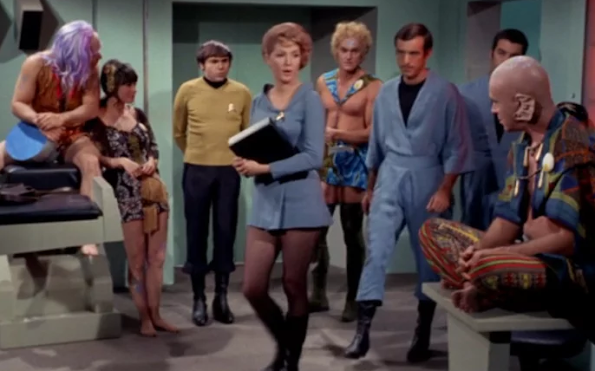Everyone has their favorite incarnation of Star Trek. Theres something to recommend in just about every version even if its just the inevitable Jeffrey Combs cameo. Fans who like weirder aliens can enjoy Prodigy. Those who want to see characters moralities challenged in times of war have Deep Space Nine. For some Patrick Stewarts master thespian skills make The Next Generation an undisputed winner while others may argue that Star Trek was never about great acting, but rather broadly operatic sci fi adventures.
So, which is the best? Beat-for-beat, episode-for-episode, it has to be the very first "Star Trek" show, known to fans as "Star Trek: The Original Series." Almost every subsequent incarnation of Trek draws its strengths from the original, and their weaker episodes usually occur when they depart from the roadmap that "The Original Series" provided. Meanwhile, every episode featuring William Shatner's Captain Kirk, Leonard Nimoy's Mr. Spock, DeForest Kelley's Dr. McCoy and the rest is, at its worst, still compulsively watchable. Let's run down the reasons why.
Although Gene Roddenberry originally pitched Star Trek as Wagon Train in space it ultimately played less like a TV western and more like The Twilight Zone which went off the air two years before Star Trek premiered. Like Rod Serlings groundbreaking show and not much else Star Trek was flexible in the genres it covered. It tackled historical fiction by going to planets made up of gangsters and Nazis. It explored prejudice through the metaphors of various alien species. Episodes highlighting Tribbles and Harry Mudd provided comedy while the pursuit of a Romulan ship had echoes of a submarine drama. Even Biblical allegories were on the table. However no matter what form an episodes story took it usually involved a subtle parallel with the present and a moral applicable to life here on Earth.
Gene Roddenberry originally pitched Star Trek as Wagon Train in space it ultimately played less like a TV western and more like The Twilight Zone which went off the air two years before Star Trek premiered. Like Rod Serlings groundbreaking show and not much else Star Trek was flexible in the genres it covered. It tackled historical fiction by going to planets made up of gangsters and Nazis. It explored prejudice through the metaphors of various alien species. Episodes highlighting Tribbles and Harry Mudd provided comedy while the pursuit of a Romulan ship had echoes of a submarine drama. Even Biblical allegories were on the table. However no matter what form an episodes story took it usually involved a subtle parallel with the present and a moral applicable to life here on Earth.
By contrast most other shows on TV in the '60s stayed in their lanes. Even the closest competitor to Star Trek Lost in Space was a much more straightforward space adventure. Part of the series versatility came from the push and pull between the network and Roddenberry the former wanted action while the latter preferred more cerebral stories. NBC even rejected the first Star Trek pilot The Cage but allowed Roddenberry to make a second Where No Man Has Gone Before which sealed the deal. Roddenberry ultimately got the best of both worlds of course by reusing footage from The Cage in the two-part episode The Menagerie.




0 Comments